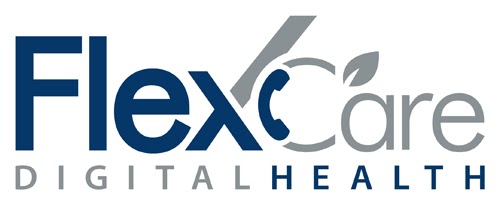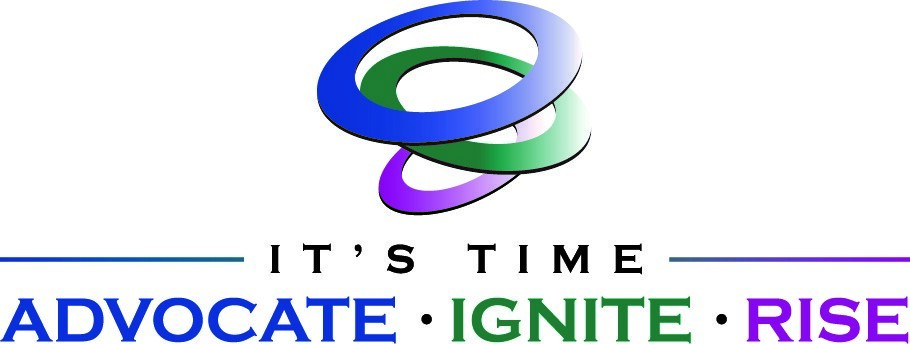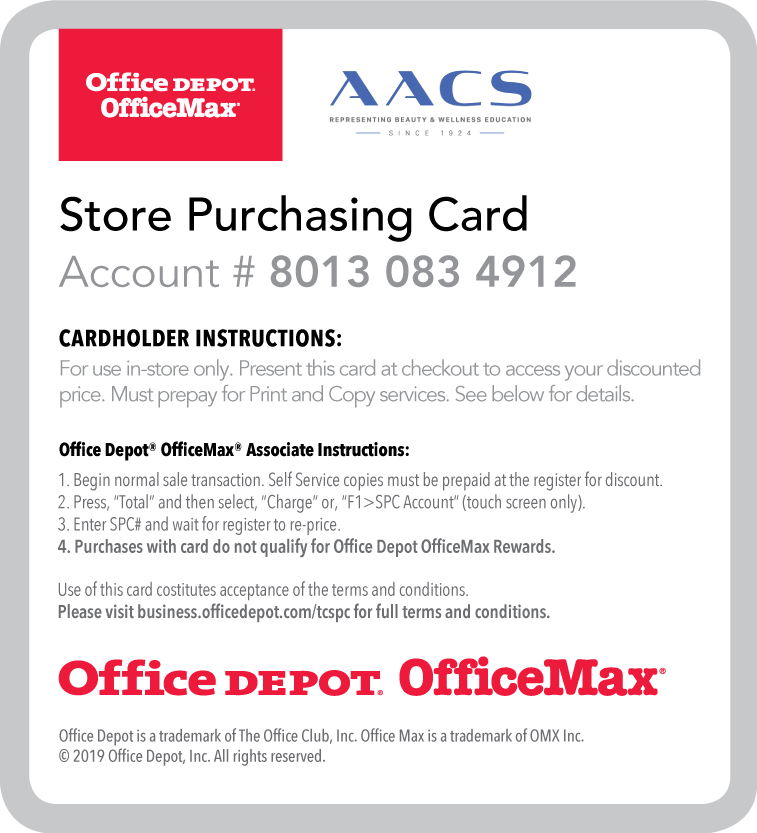 |
||||||
| Archive | Subscribe | Printer Friendly | Send to a Friend | www.beautyschools.org | ||||||
|
What's Hot
Only at 2020 AACS Annual Convention & Expo: Title IX changed dramatically in 2020 - for the first time ever, the US Department of Education enacted regulations governing sex discrimination and harassment. The compliance deadline was August 14, 2020. Join AACS General Counsel Ed Cramp and Jessica High of Duane Morris to learn what's new and what needs to be done to get into compliance now. Registration available through conference registration (additional fee required).  Serving as a Director is one of the most important ways to support and sustain AACS. Our Directors have the responsibility to provide foresight, oversight, and insight for the Association. They serve as our primary ambassadors, advocates and the conscious voice of our Members. Our Board of Directors reflect the highest aspirations of our business, our students and our industry. Elections will take place at the 2020 Virtual Annual Convention on October 27-29th. There will be three (3) School Member seats and one (1) Partner Member seat open for this election.
 Brandon MacGibeny was injured while serving as a Marine for his country. He used his GI Bill benefits to attend Cortiva Institute. When he enrolled in the King of Prussia campus of Cortiva Institute, he was looking for help and to help others. He is doing that now as a graduate and a massage therapist in the state of Pennsylvania. He reminds everyone, “People need us” and getting an education in massage therapy is a great opportunity for a great career. AACS grateful for his service. He wants Rep. Madeleine Dean, Congresswoman Susan Wild, U.S. Senator Bob Casey, and Senator Pat Toomey to know how beneficial it is to allow other students to use their GI benefits at schools of their choice. Encourage your students to record a short 30–60 second video that explains what their education means to them. Learn more about the #DontCutUsOut campaign here.

Reopening Guide States are adjusting their phased openings based on new information daily. Stay updated with AACS’ Reopening Guide to help your schools and organization proceed with protocols to ensure the safety and health of your staff, instructors, students, and community. In addition to resources, it also includes a state-by-state list of reopening policies. Click on this link to find out more. Coronavirus Resource Center AACS is here for you with a comprehensive coronavirus resource page that will be updated as new information comes in. Click here for updates from the Centers for Disease Control, World Health Organization, Small Business Administration, U.S. Department of Education, accreditors, distance learning educators and more.
Member Benefits
Emotional Intelligence (EI) is an increasingly important field of study. The purpose of this course is to explore the relevancy of emotional intelligence in learning; and how understanding the importance of emotional intelligence supports student success. While instructors are more aware now of the various forms of intelligence, emotional intelligence has been undervalued in the past as a vital form of intelligence. Indeed, emotionally intelligent students may provide insight and application of knowledge in new and informative ways which can have a positive impact on their learning progression and success. 
AACS has chosen FlexCare, a leading provider of digital health solutions, as a telemedicine partner offering unmatched service, pricing and plan flexibility to our members. FlexCare telemedicine provides members 24/7/365 telephonic or live video access to U.S. board- certified physicians in all 50 states who can diagnose, treat and prescribe medication, when appropriate, for many acute medical conditions. To find out more, visit the FlexCare website. To sign up, contact: Jennifer@FlexCare.com.
As a member benefit of The American Association of Cosmetology Schools (AACS) you are eligible to receive our exclusive discounts at Office Depot® and OfficeMax® in-store and on-line.
Access your Store Purchasing Card (SPC) and show the card to the cashier in-store at checkout and see your savings! You can access the card in several ways: 2. Text AACSSPC to 833-602-8404 or, 3. Visit this link
Recordings of webinars to help you operate your school in light of the pandemic and changing regulations are available to members only.
Additional FAQs are available regarding:
GRC News
Federal Updates The AACS Government Relations Committee and its federal advocacy team at Duane Morris LLP represents the interests of AACS members in Congress. The GRC, through the Duane Morris team, provides a bi-weekly Washington Update to AACS membership that provides the most relevant information about what is happening in Congress and at the Department that may impact your school. We encourage all AACS members to read the Washington Update to keep up to date on developments and calls to action. We urge each and every AACS member school to set up a call with the Senators and House members who represent your school locations, and consider hosting a fundraiser. We will make it easy for you. Just call our lead advocate, Katherine Brodie at Duane Morris LLP in Washington, D.C. to learn how you can get more involved and help make a difference to your school, employees and students. Katherine can be reached at: kdbrodie@duanemorris.com or (202) 776-5241. State Update Kansas Rule Would Allow Distance Learning for Theory Hours Kansas’ Board of Cosmetology has proposed Administrative Regulation amendments that would allow both in-person classroom and distance learning for theory hours. The proposed regulations would also allow a cosmetology school to submit “for approval of the board duplicate hours obtained by a student during the completion of manicuring training or esthetics training for credit toward completion of a course of cosmetology training.” According to the Economic Impact Statement, “the Board reviewed a submission from a cosmetology school outlining possible duplicate hours between programs that are applicable apart from the limitations specified in the regulation currently. The Board agreed that the hours could be credited but was unable to approve the duplicate hours due to the currently (sic) limitations in the regulation.” A virtual rulemaking hearing will be held December 1, 2020. Click here for additional information and for instructions to submit written comments prior to the hearing. 2020 State Bill Enactments The following state bills pertaining to licensure and the regulation of cosmetology and barbering schools were enacted in 2020. The text of the bills listed in this report can be found in AACS’ Bill Tracking Portal. Arizona SB 1274 - The bill increases the public member seats on the five-seat Board of Barbers from two to three, and the public member seats on the seven-seat Board of Cosmetology from two to four. To this end, it reduces the Board of Barbers seats held by license holders from three to two. For the Board of Cosmetology, the five seats currently reserved for licensee holders – including a dedicated seat for a school owner – are consolidated into three seats for individuals “who have been actively practicing in this state for at least three years immediately preceding appointment and who are any of the following: (a) a cosmetologist; (b) a nail technician; (c) an instructor; (d) a school owner.” The measure expressly states that current Board members “on the effective date of this act may continue to serve until the expiration of their normal terms. The governor shall make all subsequent appointments as prescribed by statute.” Colorado HB 1326 – The bill modified the existing occupational credential exemption for military spouses. It allows a military spouse who holds an active license in another state to practice for up to three years without a Colorado license. Prior to enactment, military spouses must obtain a Colorado license after their first year of residency. An Office of Barber and Cosmetology Licensure rulemaking webinar will be held on October 1, 2020. Click here (page 397) for additional information and the webinar link. Florida HB 1193 – The measure reduced the course of instruction for barbering from 1,200 to 900 hours. It also allows for early licensure testing of barbers at 600 hours; reduces the hours for specialist licensure; provides for 1-to-1 licensure reciprocity of barbers and cosmetologists; deregulates hair braiding, hair wrapping, body wrapping, the application of polish to fingernails and toenails, and makeup application, and; reduces the biennial CEU requirement for licensure renewal from 16 to 10 hours. Iowa SF 155 – The Act provides for mobile barbershops. Idaho H424 – This measure eliminated the state’s 900-hour haircutter license, created a charitable work exception for up to 12 days per year, and added an exemption allowing theatrical and visual arts participants to perform barber-styling or cosmetology services. The Act also states that “all apprenticeships must be completed within three (3) years from the time of commencement, unless an extension is approved by the board for good cause. The specific time allowed for each apprenticeship shall be set by board rule.” Maryland HB 349 – The Act provides for one-to-one licensure reciprocity for service members, veterans, and military spouses licensed in “good standing” in another state for at least one year. Maryland SB 294 – This measure requires for-profit colleges and trade schools, including cosmetology schools, to derive at least 10% of their revenue “from a source other than federal funds.” Beginning in FY 2023, schools would be prohibited from enrolling new Maryland residents if they fail the state’s 90/10 rule for two consecutive years or two of their three preceding fiscal years. The bill did not receive a single no vote in either legislative chamber and was enacted without being signed by Governor Larry Hogan (R).
SB 434 also contains revised licensure reciprocity language that requires applicants to declare “that sanctions have not been imposed against him or her by a similar licensing or registration board of any other state.” Minnesota SF 2898 – This Act exempts “hairstyling” and “makeup services” from licensure by the Board of Cosmetologist Examiners if the practitioner completes a four-hour course in health, safety and infection control from an approved continuing education provider. South Dakota SB 10 – The measure allows “credit for general coursework in areas not specific to the practice of cosmetology, nail technology, or esthetics, that is completed in other programs or institutions, to be applied to any course of study required for licensure.” South Dakota SB 23 – Repealed the high school graduation or equivalent requirement for professions under the state’s Cosmetology Commission Utah HB 6005 – The Act allows a barber school, cosmetology/barber school, electrologist school, esthetics school, hair design school, or nail technology school to offer up to 50% of their instruction online. AACS State Relations Committee Co-Chair Brenda Scharman testified in support of the bill and was quoted in a Provo Daily Herald article on the measure. The Utah Beauty Association also presented a factsheet to legislators that can serve as a template for legislative advocacy in your state. Please do not hesitate to contact Brian Newman at bnewman@abingdonstrategies.com or by phone at 202-491-5254 with comments or questions. |
||||||










